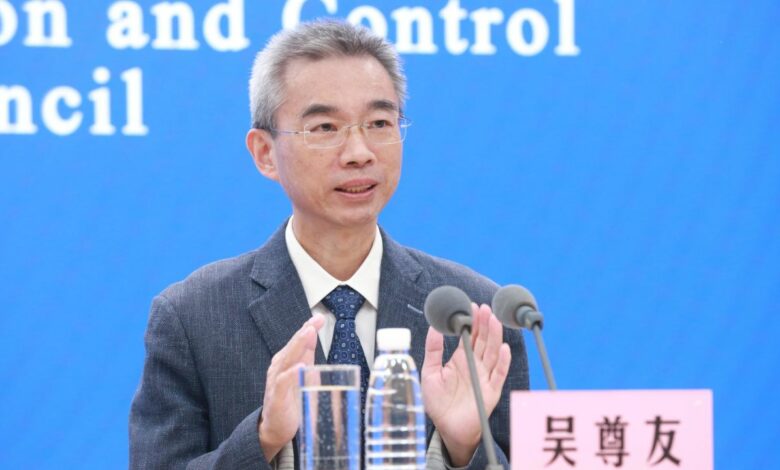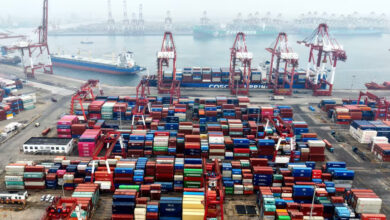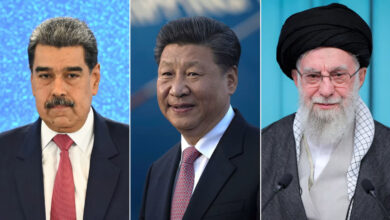
A top Chinese health official has warned people against touching foreigners, a day after mainland China confirmed its first case of monkeypox.
Wu Zunyou, chief epidemiologist at the Chinese Center for Disease Control and Prevention, wrote on China’s Twitter-like platform Weibo on Saturday that the country’s Covid-19 restrictions and tight border controls had thus far prevented the spread of monkeypox – until a case “slipped through the net.”
That case was detected in the southwest municipality of Chongqing. An “international arrival” was under mandatory Covid-19 quarantine when the infection was discovered, according to local authorities – however, they did not say whether the person was a foreign or Chinese national.
Cases of monkeypox, which causes flu-like symptoms and blister-like lesions, began emerging around the world in May. The United States has reported 23,500 cases so far this year, according to the US Centers for Disease Control and Prevention.
“It is necessary and important to strengthen the monitoring and prevention of monkeypox,” Wu wrote in his post, emphasizing the risk of disease spreading through international travel and close contact. He gave five recommendations for the public – the first being, “Do not have skin-to-skin contact with foreigners.”
The recommendation stirred controversy on Weibo, with some praising his advice as reasonable and some expressing relief that they didn’t know many foreigners. “It’s good to open the country’s door, but we can’t just let everything in,” one Weibo user wrote.
But others slammed Wu’s post as discriminatory and harmful, with several drawing parallels to the wave of xenophobia and violence Asians overseas faced at the start of the Covid-19 pandemic.
“This is a bit like when the pandemic began, when some people overseas avoided any Chinese people they saw out of fear,” a Weibo user wrote. “I don’t believe these two things have any scientific basis, they are too broad and will exacerbate public panic.”
Others pointed out that there were many foreign workers and long-time residents in China who would not have left the country recently, and therefore would be no more likely to be infected than Chinese citizens.
“When the pandemic first began, some of our foreign friends stood up and used our own platforms to tell everybody, ‘Chinese people are not the virus,’” another person wrote on Weibo.
“Afterward, when the domestic outbreak was brought under control and our foreign friends began to face discrimination, many Chinese people with their own platforms were completely silent.”
Covid fatigue, three years on
The debate over Wu’s post and other warnings shared by Chinese state media highlights the Covid fatigue shared by many in mainland China, where nearly three years of stringent restrictions have disrupted daily life and thrown the economy into turmoil.
Mainland China has some of the strictest remaining Covid rules in the world, including border restrictions, mandatory quarantines, social distancing requirements and snap lockdowns that have left residents unexpectedly trapped in office buildings or shopping malls at any hint of an infection inside.
At the peak of the country’s outbreak this spring, major cities were locked down with little advance notice and often confusing information from authorities.
Shanghai, for instance, was locked down just days after officials insisted there were no plans for such a measure, leaving many of its residents unable to access food, medical care or other basic supplies.
Chinese experts say it’s unlikely monkeypox will wreak such chaos, with state media Global Times reporting on Friday the disease “poses little threat,” citing a hospital director.
However, they have also urged continued vigilance, with some experts highlighting the need for “strict surveillance” and countermeasures, according to Global Times.
Monkeypox spreads through close contact, according to the US CDC. That includes direct physical contact with lesions or rashes from monkeypox patients, touching objects patients have used, “respiratory secretions” shared through face-to-face interaction, or sexual contact.
In his Weibo post on Saturday, Wu urged people not to have close contact with strangers or people recently arriving from overseas; to maintain good hygiene; and to use disposable toilet paper or disinfect toilet seats with alcohol wipes before using.
But some on Weibo responded to these recommendations with frustration and anger, pointing to the many sacrifices they have already made throughout the pandemic – perhaps a sign of the public’s already-strained relationship with the authorities.
“We are willing to buy car insurance in case of accidents, but we will not refuse to drive,” one person wrote. “We will wear face masks to prevent catching Covid, but we will not refuse to go outside.”
Another user, responding to Wu’s guidance, was more blunt: “After how the Covid-19 pandemic was handled, can you still trust him?”




